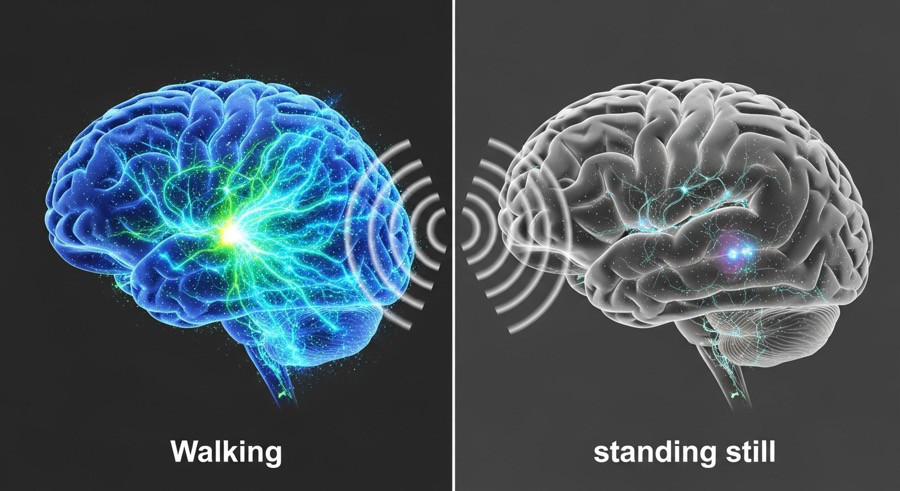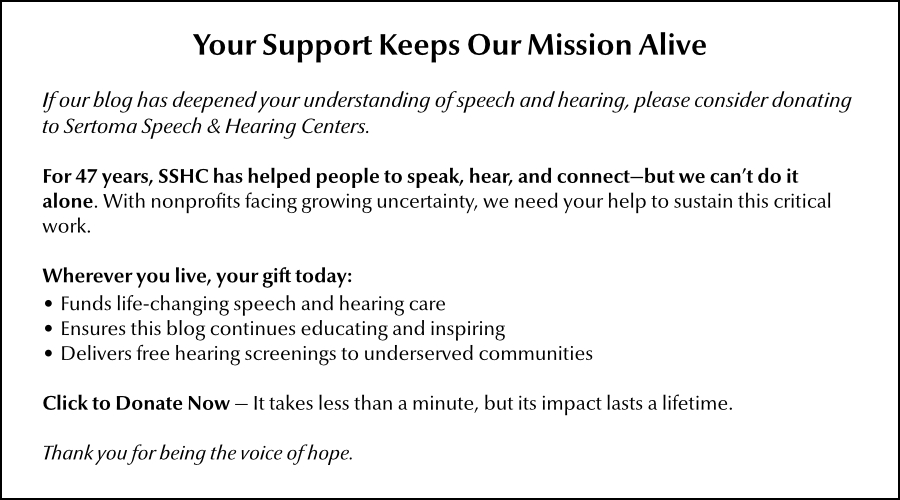Ready to turn your ears into superhuman listening devices? Just start walking. A study from Zhejiang University and the University of Würzburg discovered that your hearing upgrades when you walk. Researchers found that movement acts like a neurological volume booster, transforming each footstep into a sound enhancer.
Why it matters
Walking boosts the brain’s response to sound more than standing still. This finding could reshape rehab programs for stroke patients, children with sensory issues, or anyone needing to stay alert in busy settings.
1 big idea
Movement is a volume knob. Walking lowers background noise (your footsteps) and amplifies novel sounds like honks, shouts, or a bike bell, helping you react faster.
By the numbers
Thirty volunteers wore EEG caps and listened to beeps while they (a) stood, (b) marched in place, or (c) walked a figure-eight loop. The neural spikes to the same beeps were strongest during real walking and weakest while standing.

Zoom in
Direction mattered. A right turn cranked up right-ear sounds at the start, then dialed them down. This was proof the brain shifts attention with each stride like a driver checks mirrors before a lane change.
Yes, but
The boost only kicked in for unexpected tones blasted into one ear. Predictable, stereo sounds played to both ears barely moved the needle, showing the brain saves energy for sonic surprises.
The takeaway
You don’t need fancy gear to tune your ears; you need momentum. A brisk walk rewires auditory filters, making it easier to notice new sounds and ignore routine ones.
The bottom line
Move to hear better. A five-minute walk could sharpen your awareness more than any static-listening drill.
Schedule a free hearing screening
Our free 15-minute hearing screening with an audiologist will help you:
- Understand your current hearing health
- Prevent communication barriers
- Stay engaged with loved ones
- Maintain your quality of life
Schedule your free screening today and stay connected the sounds you love.
★ Call 708-599-9500 to schedule your free screening.
★ For facts about hearing loss and hearing aid options, grab your copy of The Hearing Loss Guide.
★ Sign up for our newsletter for the latest on Hearing aids, dementia triggered by hearing loss, pediatric speech and hearing, speech-language therapies, Parkinson's Voice therapies, and occupational-hearing conservation. We publish our newsletter eight times a year.
Don't let untreated hearing loss spoil your enjoyment of life.


